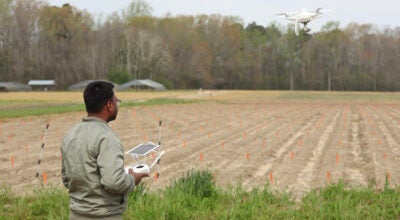Strict Smithfield scrutiny sought
Published 7:58 pm Saturday, June 22, 2013
As a federal government committee reviews a proposed takeover of Smithfield Foods Inc. by Shuanghui International Holdings Ltd. of China, the deal has begun to raise the eyebrows of some U.S. politicians at the state and national level.
Republican Rep. J. Randy Forbes, whose Fourth District in Virginia encompasses Smithfield, called on Friday for Secretary of Agriculture Tom Vilsack to be included in the Committee on Foreign Investment in the United States’ review of the deal, on the grounds that food safety and food supply “represent a critical infrastructure of the United States and as such, must be viewed through the lens of a national security concern.”
In a letter to President Barack Obama that was released to the media, Forbes stated that he considers it “imperative that any review and subsequent
investigation include a strong emphasis on the food safety and food supply implications of this merger.”
Shuanghui has made a $7.1-billion bid to take over the U.S. company, which is headquartered in Smithfield. Company officials have said company headquarters would remain in Smithfield, no facility closures are expected and the new company would honor collective bargaining agreements and wage and benefit packages in place for Smithfield’s 46,000 employees.
Also on Friday, Virginia Delegate Robert G. “Bob” Marshall (R-13th) announced he had proposed to Virginia’s congressional delegation that Smithfield Foods employees be allowed to purchase the company through an Employee Stock Ownership Program.
Mrashall stated in a press release that he had based the ESOP proposal on a model by Norm Kirland, president of the Center for Economic and Social Justice, a nonprofit think tank located in Arlington.
Under the model he proposed, Marshal stated, an ESOP trust would be set up to purchase all available shares of Smithfield Foods, financed through a consortium of Virginia banks and later rediscounted to a Federal Reserve bank. The loans would be repaid from future earnings of the company through contributions to the trust, and after repayment of the loans, earnings would be returned to the employee owners as stock and cash.
“If this plan were to be implemented, it could be a model to allow for a strong economic recovery, with Americans taking charge of their own destiny,” Marshall stated, calling the proposal “a win-win solution.”
As proposed by the boards of directors of Smithfield and Shuanghui, the takeover would be financed through a combination of cash provided by Shuanghui, rollover of Smithfield debt and debt financing committed by Morgan Stanley Senior Funding and a syndicate of banks. Smithfield shareholders would be paid $34 a share for the transaction.
“This is a great transaction for all Smithfield stakeholders, as well as for American farmers and U.S. agriculture,” said C. Larry Pope, president and chief executive officer of Smithfield.
“We have established Smithfield as the world’s leading and most trusted vertically integrated pork processor and hog producer, and are excited that Shuanghui recognizes our best-in-class operations, our outstanding food safety practices and our 46,000 hard-working and dedicated employees,” Pope added.
“It will be business as usual — only better — at Smithfield. We do not anticipate any changes in how we do business operationally in the United States and throughout the world.”
In his letter to Obama, Forbes stated he is concerned about “food safety violations committed on the part of Shuanghui” and pointed to a variety of different pork-related food-safety issues that have been reported in China in recent years.
“In 2011, a chemical harmful to humans, clenbuterol, was discovered to be fed to livestock at sixteen Chinese pig farms and in 34 tons of pork products, including Shuanghui controlled farms,” he stated as an example.
Forbes also suggested that the expected rise in exported pork products by Smithfield if the deal goes through could ultimately result in “the possibility of the U.S. food supply being greatly diminished,” a concern that he believes raises the takeover of Smithfield Foods, the world’s largest pork processor and hog producer, to the level of a national security issue.
A Smithfield spokeswoman disagreed on Friday in an emailed response to questions.
“We believe the proposed combination does not present any national security concerns, is good for U.S. farmers and agriculture and will advance U.S.-China relations,” stated Annabelle Rinehart, managing director of Joele Frank, Wilkinson, Brimmer and Katcher, a corporate communications firm that represents Smithfield Foods.
“We will continue to provide Congress and CFIUS with all the information requested to allow a full and timely review of the combination.”






